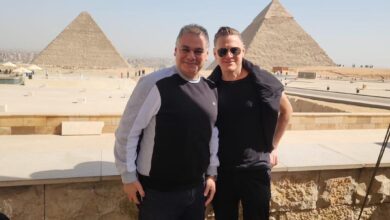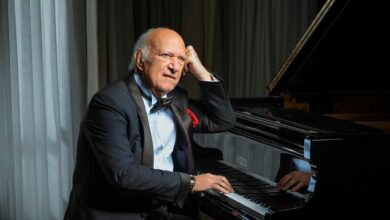
On Mashrou Leila’s latest album is the song “Inni Mnih” (I’m All Right). The opening line of the lyric can loosely be translated as “Let’s burn this city to the ground and build a more honest one.”
A good lyric is either one that is accurately poignant or can offer several meanings — often different from what the writer initially intended — and this one scores on both counts. Set to a melancholy melody and sung with a resigned sense of anguish, the lyric resonates sharply with the dynamic of our relationship with the city in which we live, livened by the backdrop of the events of 25 January 2011 and onward.
For the idealists, there was a moment in which it was felt that change was possible, but Cairo — Arabic for “the conqueror” — vanquishes all. Having failed to illicit the desired change in the sordid, overbearing city, the wish to burn it all down and start from scratch, and do it right this time, becomes all the more appealing.
On a recent trip abroad, I was struck by the difference in how the individual interacts in the public space. You are permitted to be however it is you happen to be in the public domain. It is a right for all, a place for all.
One wishes this were true here, but the most pertinent example is that of women braving Cairo’s streets through the morass of indignities they receive simply for being themselves. There are many more examples of this encroachment on the individual in the public arena, couched in terms of tradition or culture or values. It would not be so grating were this liberty to infringe on others not so hypocritical and corrupt by its very nature.
So let’s burn this city down and build a more honest one. Dishonesty dominates our public and private lives, and — as another line in the song goes — “I am tired of living with myself.”
This piece was originally published in Egypt Independent's weekly print edition.




